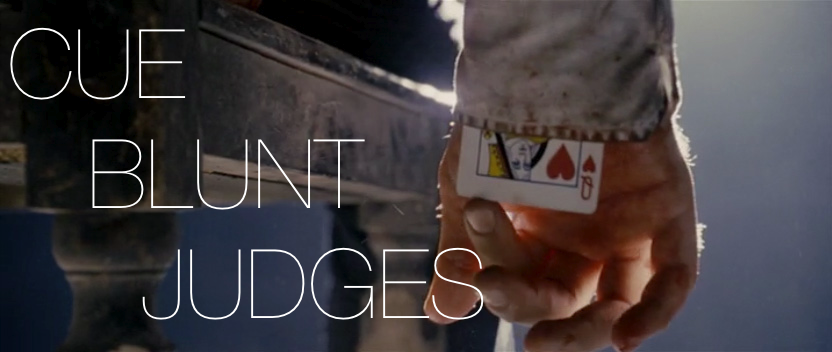
- Director: Aaron Schneider (First time directing a feature film)
- Cast: Robert Duvall, Sissy Spacek, Bill Murray, Lucas Black, Bill Cobbs
- Cinematography: David Boyd (He is the DoP of Firefly)
- Is this film worth two hours of your time? Yes, particularly if you are at all a Bill Murray fan or a Robert Duvall fan or a fan of good acting.
One of the ultimate questions in my movie-loving, movie-reviewing mind has always been: When do you decide how you feel about a movie?
Is it during the first half? That can’t be. Many a film suffer from the dreaded incredible- first-half-insipid-second-half phenomenon (or ifh-ish if you will). In fact, I hereby propose the judges tackle this subject! I believe Lord Ebert already has but we can add our humble opinions to the mix.
Is it during the first half? That can’t be. Many a film suffer from the dreaded incredible- first-half-insipid-second-half phenomenon (or ifh-ish if you will). In fact, I hereby propose the judges tackle this subject! I believe Lord Ebert already has but we can add our humble opinions to the mix.
Is it right after the film ends?
Should we take time to reflect on the film? Is it a week later or 6 months later that is the gauge?
These questions swirled around my head as I took in Get Low. I loved this film throughout. I loved it as it finished. I loved it afterward. It’s been a couple of month and I still love it but in a more subdued way. It did not have a lasting impact. But it was a great time while it lasted.
The film’s characterization as “a true tall tale” is a good way of handling this mixture of folk tale/real life story, allowing the writers to have creative control while taking advantage of the lure of a ‘true story’. It is the story of a mysterious 1930’s Tennessee hermit, Felix Bush (Robert Duvall), who commissions the help of funeral home director Frank Quinn (Bill Murray) and his assistant, Buddy (Lucas Black), in throwing himself a funeral while he is still alive. Felix wants to tell his story to the townspeople who are afraid of him and who collectively taunt him in that particularly cruel and quiet way only a mass can do. The film is categorized as a Comedy, Drama and Mystery but the mystery part in the end doesn’t matter very much at all. It is a very funny film and it is a drama with satisfying gravitas.

